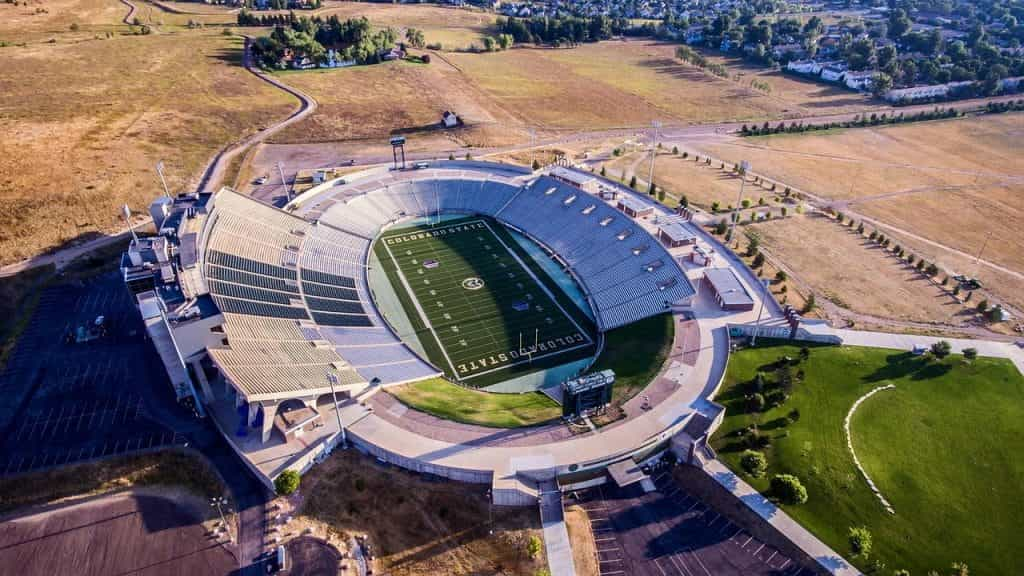Colorado To Approve Sports Betting Licenses
Colorado is set to begin issuing its first sports betting licenses, with seven of the state’s casino applicants expected to be approved by the end of the week. The move comes just over two months before the launch date of sports wagering, which was approved by voters in November of last year.

Seven of Colorado’s sports betting license applicants are set to be approved by the end of the week, with legal wagering set to launch on May 1. ©Jan Alexander/Pixabay
All seven casinos have applied for master licenses which will permit them to open onsite sportsbooks, as well as contract external operators to operate their online sportsbooks. The granting of licenses will be decided during a meeting by Colorado’s Limited Gaming Control Commission, a five-member Governor-appointed gaming regulatory body.
The casinos set to receive the gaming licenses include the Dostal Alley in Central City; Brass Ass Casino, Midnight Rose Hotel and Casino, J.P. McGill’s Hotel and Casino and Double Eagle Hotel and Casino in Cripple Creek; and the Monarch Casino Resort Spa and Saratoga Casino in Black Hawk.
Bets are set to be open from May 1 after voters narrowly approved Proposition DD in a referendum last year. The law now allows for legalized betting on professional sports to be taxed at a rate of 10 percent, with tax revenues going to the state’s water budget.
While onsite betting should have little trouble to be up and running by the launch date, it may take some time before mobile betting can be launched. This is because operators of physical sportsbooks require a separate license to offer digital options that will need to be approved by the Gaming Commission.
According to Dan Hartman, the director of the Department of Revenue’s Gaming Enforcement Division, there is still a fair way to go before the regulations for online betting are decided on. This is, he claims, because of the need to ensure that the online offerings are determined safe for customers.
“Obviously the finalization of the regulations and rules that will govern how people do it and how people operate, those companies operate in the system. We have other folks coming online and in our current staffing that will be looking at those computerized systems, making sure that … they’ve gone through laboratory testing, that we know that they are safe, secure.”– Dan Hartman, Director, Department of Revenue’s Gaming Enforcement Division
The Progress of the Sports Betting Roll-Out
Dan Hartman has further outlined the hurdles that state regulators need to address before sports betting can be launched. In total, 50 license applications have been submitted to the Division of Gaming, with 19 applications for online sports betting and 10 licenses for onsite sportsbooks. Of Colorado’s 33 casinos, all have applied for master licenses.
The limit for how many licenses can be given depends on the number of retail casino licenses in the state. “If another casino were to open, or something like that down the road, certainly they could get a master license and they could then look into sports betting,” said Hartman.
While the applicant casinos are still unable to launch mobile sportsbooks, this hasn’t stopped them from taking the necessary measures to partner with external operators. Before sports betting was even approved last year, Double Eagle entered a partnership with PointsBet to launch both physical and digital sportsbooks.
Century Casinos also announced it would partner with the app Circa Sports Colorado to provide digital wagering through one of its three casinos, while Twin River Worldwide Holdings, the owner of a number of casinos in Black Hawk, has also entered into partnerships with DraftKings and FanDuel digital providers.
In addition to ironing out the specifics of mobile wagering, Hartman has highlighted the need to create data centers to process and analyze bets made in physical sports betting locations to ensure the security of customers. Hartman said:
“You’re only allowed to bet in Colorado, so there will be geolocation of people within Colorado, making sure that their geolocation works, so if they’re inside of Colorado they can make a bet, if they step outside, they can’t.”
Gambling has been seen as a way to boost the state’s finances since it was first legalized in 1990, when voters approved gambling to be offered in the historic mountain towns of Black Hawk, Central City and Cripple Creek to ensure they’re revitalization. The tax revenues generated from sports betting is set to help fund the Colorado Water Plan, an ambitious water conservation and management initiative.



